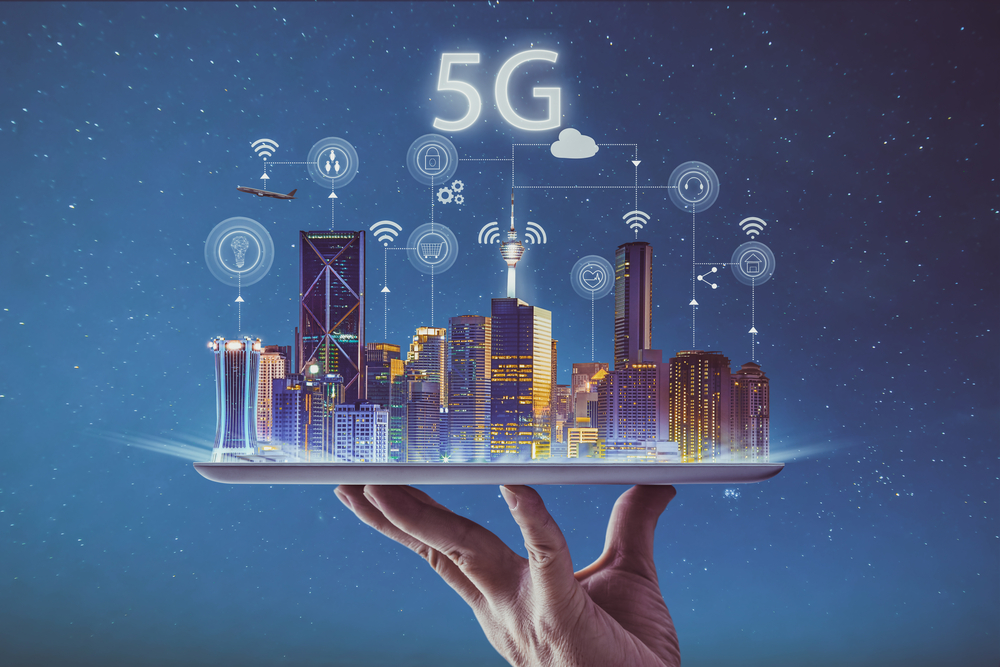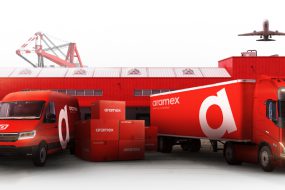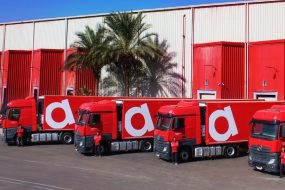

Over the years, the world has consistently grown in terms of technology and its usage. Radio wave networks (or cellular networks) have transformed from the first generation—launched in the late 1970s—to the latest fifth generation, significantly advancing logistics and other business services. Fifth-generation technology, or 5G networks, is the new cellular and wireless technology generation. These networks can handle more than 10X the download speed of 4G and can handle a wide range of gadgets in an increasingly connected globe. 5G technology uses more advanced encryption than 4G, making it more secure. It also offers more options for secure authentication, including network slicing and SIM-based authentication.
5G technology has transformative potential for many industries, including logistics and transportation. In addition to providing top-level network performance to enhance logistics, it also helps to resolve issues with courier tracking, streamlines supply chain management to address challenges faced with unreliable suppliers, speeds up goods transportation, and ultimately transforms warehouse management, among other things.
Impact of 5G technology on Logistics
Real-time tracking and monitoring
Courier tracking is one of the significant benefits of 5G in logistics. Service providers can now determine the exact location of goods with unprecedented accuracy, leveraging the technology’s immense data transfer capabilities. This allows businesses to engage in more efficient logistics, worry less about uncertainties, and promptly address any disruption while shipping goods. 5G also helps monitor freight and assets’ health on the go, ensuring businesses can identify potential future issues and promptly improve maintenance plans.
Related article: 5 Busiest Shipping Routes in the Growing Maritime Industry
Optimisation of supply chain management
Technology in supply chain management is pivotal to revolutionising the industry in diverse ways. For instance, enhanced connectivity and reliability facilitate seamless communication among supply chain partners, resulting in better collaboration and service coordination.
The high-speed transmission enabled by 5G boosts efficiency, allowing supply chain managers to quickly analyse vast amounts of data and make real-time adjustments to transportation routes, inventory levels, and production schedules. This agility helps streamline operations and improve decision-making across the supply chain.
Autonomous vehicles and drones
5G significantly supports the efficient use of automated vehicles and drones in logistics and transportation. With its vast data management capabilities, service providers can control drones and automated vehicles to carry out warehouse stocking, delivery, and long-haul transportation—saving labour and speeding up each process.
Enhancements in Transportation
Improved Vehicle-to-Vehicle Communication
Vehicle-to-vehicle (V2V) communication plays an essential role in the evolution of modern transportation systems, and its effectiveness is greatly enhanced by the capabilities provided by 5G technology. This advanced communication framework allows for the rapid transmission of data in real-time, which is crucial for improving road safety and optimising traffic flow.
With 5G’s advanced network slicing features, different types of communication can be prioritised according to the system’s specific needs, ensuring that critical information is transmitted without delay. 5G’s ultra-low latency characteristic enables vehicles to communicate almost instantaneously, facilitating swift responses to potential hazards and enabling coordinated movements among vehicles to prevent accidents.
Traffic Management and Infrastructure
The logistics industry employs diverse shipping methods that utilise optimised routes to mitigate delays and disruptions in the delivery process. With the advent of 5G technology, transportation systems have become significantly more efficient. This cutting-edge technology facilitates interpreting and communicating real-time data collected from sensors and cameras strategically placed throughout the transportation network. This data supports preventing congestion and enhances the overall flow of traffic. As a result, it not only boosts transportation efficiency but also elevates road safety standards, ultimately ensuring smoother and more reliable delivery experiences.
Related article: 10 Latest Refinery Technologies Improving Safety and Efficiency
Enhancing Customer Experience through Connectivity
The top-level 5G communication capabilities help to enhance collaboration between service providers and their customers through streamlined communication and real-time data sharing. In addition, the high bandwidth offering of the 5G technology allows devices and systems to interact and share data seamlessly across multiple systems and channels. This leads to a more efficient decision-making process that fosters more robust partnerships between stakeholders and helps resolve customer queries or address other inefficiencies in real-time.
Related article: Supply Chain Logistics Barriers and How to Overcome Them
Challenges and Future Implications
Security and Data Privacy Concerns
5G technology has brought many improvements and transformations to the logistics and transportation industry. However, due to the increased connectivity, complexity, and deployment of emerging technologies, there are still some security and data concerns it poses.
The increased speed in connectivity and data transfer also enhances the potential at which network operators and service providers can collect data. This high volume of data collection and analysis also tends to increase the possibility of privacy breaches and detailed profiling of individuals.
Additionally, since 5G networks rely heavily on software, they become more vulnerable to exploitation. Therefore, ensuring integrity and enhancing supply chain protection is essential to prevent potential threats.
Integration with Existing Infrastructure
5G is compatible with many existing transportation systems and technologies, such as legacy networks, IoT devices, and 3G/4G networks. However, different technologies within the same environment will often be needed for different use cases and may generate compatibility issues that must be fixed to ensure seamless integration.
Potential for Further Innovations and Developments
5G networks encourage various applications across several domains, including smart cities, edge computing, the Internet of Things (IoT), and virtual and augmented reality. As 5G networks continue to evolve, the diversity and complexity of their specifications pose some challenges that would require significant investments and might result in slower rollout of the features for different businesses.
In a survey about the issues linked to 5G technology, 18% of participants reported that technological obstacles pose the most significant challenges, while 19% mentioned operational difficulties. Nonetheless, overcoming these challenges is crucial for realising this revolutionary technology’s full potential. Collaboration between regulatory bodies, government, regulatory systems, and other stakeholders is critical for the technology’s global adoption.
Key Takeaways
Logistics and transportation companies are experiencing significant productivity gains thanks to 5G technology, a primary means of vehicle communication. Enhanced communication speed reduces message delivery delays, thereby improving traffic flow. Additionally, 5G’s encryption mechanisms enhance security and offer other advantages to the logistics sector, such as facilitating the delivery of time-sensitive freight and enabling a new level of intuitive logistics and transportation.
As this technology develops, it will drive even more significant innovations across various industries, transforming how cities manage transportation and address environmental challenges. Integrating AI with 5G will create new opportunities for innovative and efficient systems that reshape logistics and infrastructure.
Contact us for competitive quotes on freight services that enhance your supply chain performance.




